Discover the Best Tour Operator Morocco for Unforgettable Adventures
Explore top Moroccan tour operators for unforgettable adventures. Discover unique experiences that s...
Read this article
Suspendisse interdum consectetur libero id. Fermentum leo vel orci porta non. Euismod viverra nibh cras pulvinar suspen.
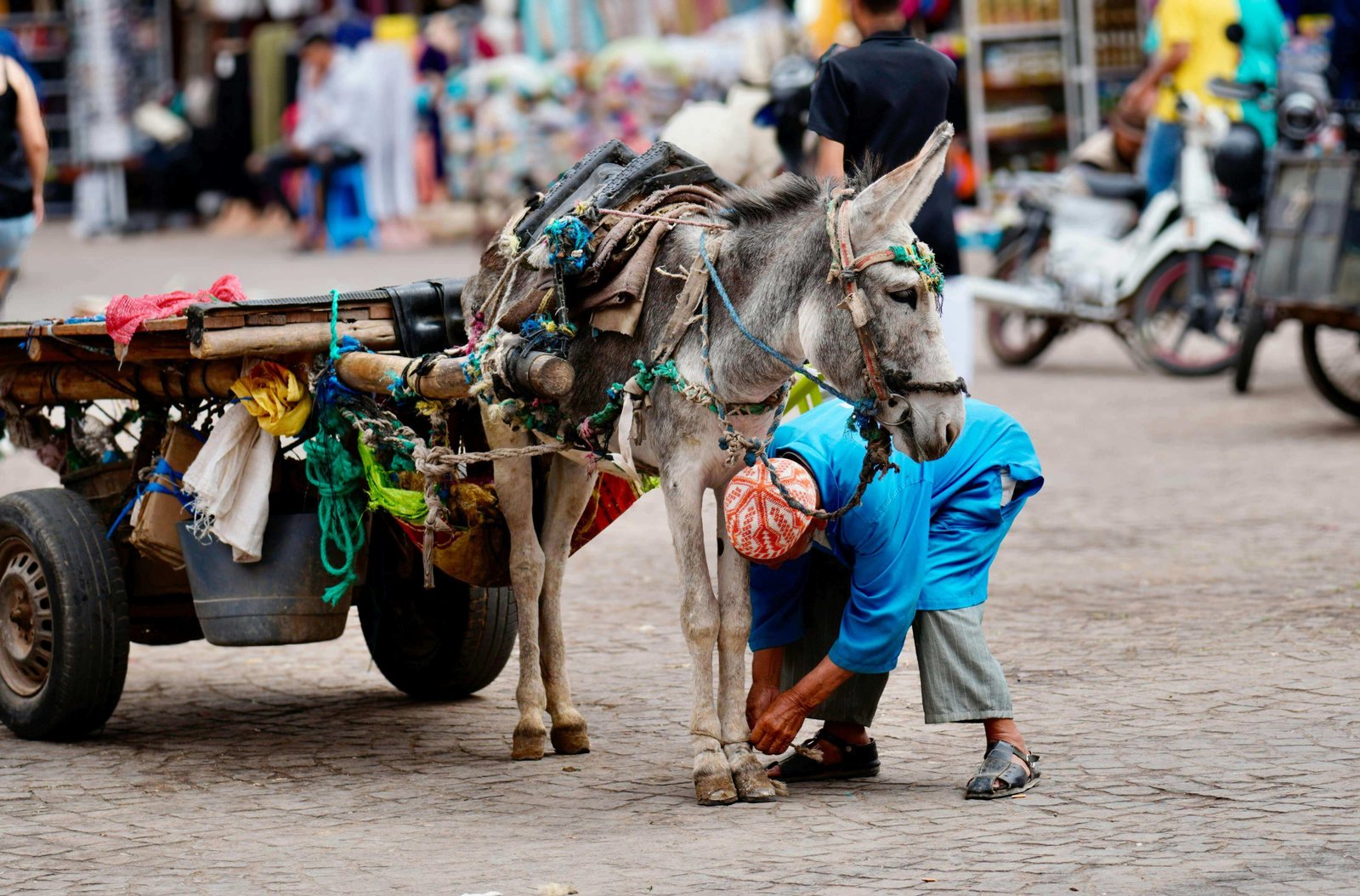
Morocco beckons US travelers with its enchanting blend of ancient traditions and modern accessibility. As one of the most welcoming destinations in North Africa, this vibrant country offers Americans an extraordinary gateway to experience rich culture, stunning landscapes, and unforgettable adventures. Morocco's coastlines, Morocco's traditional crafts, and Morocco's climate, along with Morocco's diverse landscapes from the sweeping Sahara dunes to the rugged Atlas Mountains, showcase the country’s unique natural beauty and heritage. Planning a trip to morocco from usa has never been easier, thanks to visa-free entry policies and excellent flight connectivity from major US cities.
This comprehensive guide covers everything you need to know for your upcoming journey to Morocco. From essential travel requirements and the best morocco tours to cultural experiences and practical packing tips, we’ll help you navigate every aspect of planning your perfect Morocco adventure. If you are visiting Morocco, this guide is an invaluable resource for making the most of your trip and ensuring a memorable experience. Whether you’re dreaming of exploring the Sahara Desert, wandering through medieval medina markets, or enjoying sweet mint tea in Berber villages, this guide provides the actionable insights you need to make your Morocco trip unforgettable. Many guided tours in Morocco include immersive activities like cooking with local families, offering a deeper connection to Moroccan culture.
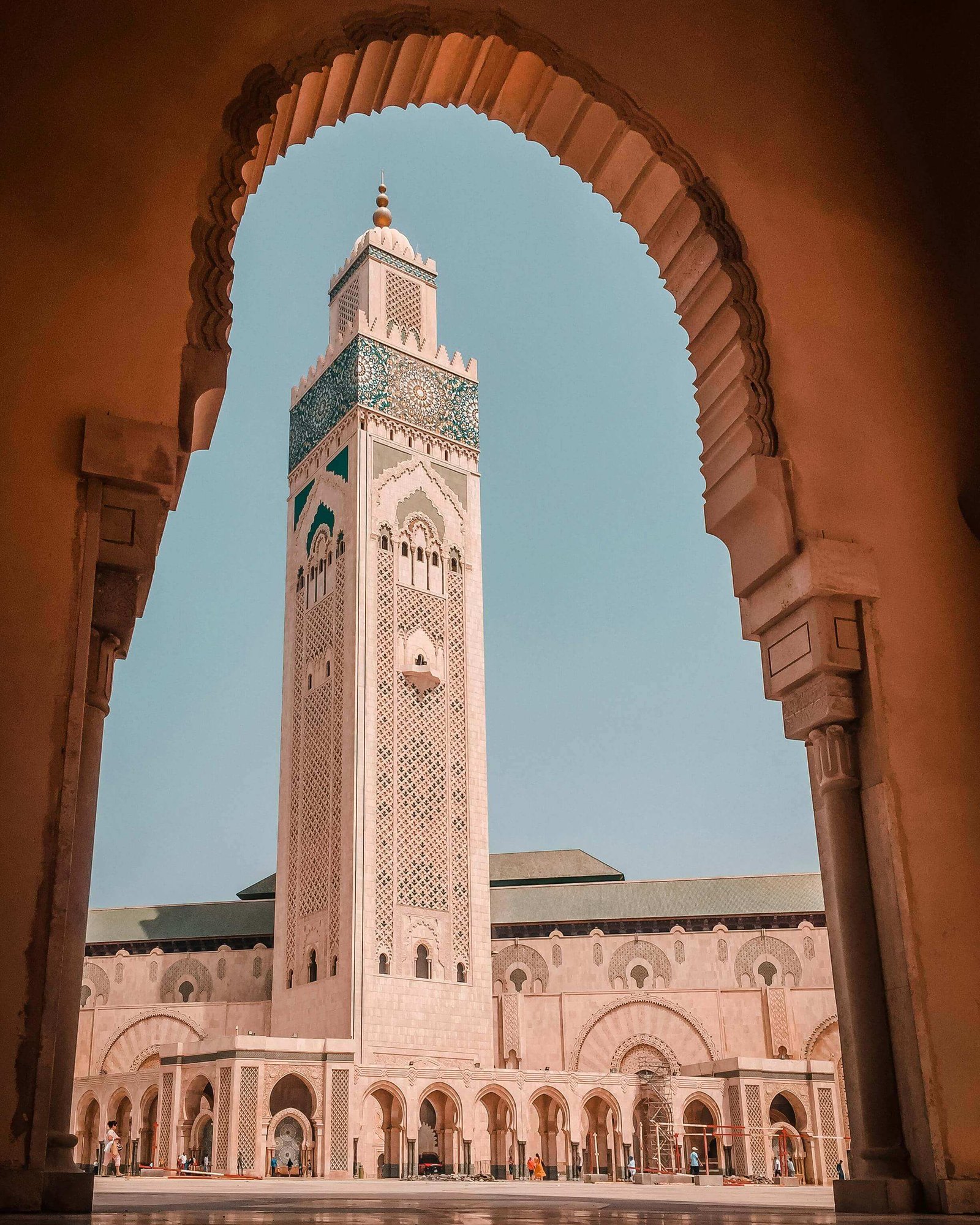
US citizens planning to visit Morocco enjoy significant advantages when it comes to entry requirements. Your valid passport must have at least six months of validity remaining beyond your planned departure date - this requirement is strictly enforced by Moroccan border officials. The good news is that no tourist visa is required for stays up to 90 days, making Morocco one of the most accessible destinations in the region for American travelers. To avoid any last-minute issues, travelers should ensure their travel documentation is checked well in advance of the trip departure date. Travelers are held responsible for ensuring all paperwork and health requirements are met before departure. Additionally, the Moroccan Dirham (MAD) is the local currency, which cannot be acquired outside of Morocco, so plan to exchange money upon arrival. While credit cards are becoming more accepted, it is advisable to have cash for smaller purchases and tips in Morocco. It is also important to note that it is illegal to export Moroccan currency, so ensure you use or exchange any remaining Dirhams before leaving the country. Guided tours in Morocco often include visits to traditional tanneries and local markets called souks, offering travelers a chance to experience the vibrant culture and craftsmanship firsthand.
Direct flights are available from several major US cities, with the most convenient routes departing from New York JFK and Miami International Airport to Mohammed V International Airport in Casablanca. These direct flights typically take 7-8 hours, making Morocco surprisingly accessible from the eastern United States. For travelers on the West Coast or those seeking more flight options, connecting flights through European hubs like Madrid, Paris, and London offer excellent alternatives, often involving transit through different countries, though total travel time extends to 10-14 hours with connections. Transportation on Morocco tours includes comfortable vehicles, often equipped with amenities like air conditioning and USB outlets, ensuring a pleasant travel experience between destinations. Morocco also boasts an excellent train network, including the high-speed Al Boraq train, and reliable intercity buses, making it easy to travel between cities and regions.
The optimal booking period for the best prices is 2-3 months in advance, especially during peak travel seasons. Many travelers find significant savings by booking flight and accommodation packages together, particularly when working with established tour operators who have negotiated rates with airlines and hotels.
Upon arrival, you’ll receive an entry stamp allowing you to stay for up to 90 days. Extensions beyond this period require special applications at local police stations and are granted only in exceptional circumstances. Most visitors find that 90 days provides ample time to explore this fascinating Muslim country thoroughly. It is advisable to carry photocopies of important documents, such as your passport to ensure smooth handling of any administrative requirements during your stay. If your visit coincides with Ramadan, usually falling in April or May, you’ll have the opportunity to experience unique cultural traditions and observe the significance of this holy month in Moroccan life. October, on the other hand, brings the date season, enhancing the greenery and aromas of Morocco, making it a particularly delightful time to visit. Mosques in Morocco are generally only accessible to Muslims, with exceptions like the Hassan II Mosque in Casablanca, which welcomes non-Muslim visitors. When visiting mosques in Morocco, women should cover their hair as a sign of respect.
Timing your trip to morocco from usa correctly can make the difference between a comfortable adventure and a challenging experience. The optimal seasons for most travelers are spring (March through May) and fall (September through October), when temperatures are mild and comfortable across the country.
Spring offers particularly magical experiences, with blooming landscapes in the Atlas Mountains and perfect weather for exploring the imperial cities. Temperatures during this period typically range from 60-80°F (15-27°C), ideal for walking tours through ancient medinas and outdoor activities. The High Atlas Mountains are especially beautiful during spring, with snow-capped peaks providing stunning backdrops for your morocco adventure.
Fall provides equally comfortable weather after the intense summer heat subsides. September through October sees temperatures cooling from summer highs, making it perfect for desert excursions and exploring major cities like Marrakech and Fez. This period also coincides with the harvest season in many rural areas, offering unique cultural experiences. Many tour operators provide family-friendly options for exploring Morocco, accommodating children in their itineraries and ensuring enjoyable experiences for all ages.
Winter months (November through February) are ideal for southern regions and desert camping experiences. While northern cities like Casablanca and Rabat can be quite cool and rainy, the Sahara Desert and southern Morocco enjoy pleasant daytime temperatures perfect for camel trekking and overnight desert camps. The contrast between cool mountain air in the Middle Atlas Mountains and warm desert days makes winter an excellent time for diverse experiences. Coastal areas are also particularly enjoyable during this season, offering a quieter and more relaxed atmosphere. Summer (June to August) in Morocco is extremely hot in the interior and the Sahara, but coastal cities provide a cooler experience due to ocean breezes.
Summer months are best avoided, especially for first-time visitors, due to extreme heat that can reach over 110°F (43°C) in inland areas. However, coastal cities along the Atlantic Ocean, like Casablanca and Rabat, remain relatively cooler year-round due to ocean breezes, making them more tolerable even during summer months. Additionally, eating, handling, or giving things with the left hand is discouraged in Moroccan culture, as it is considered unclean. Travelers are also advised to dress modestly, especially when visiting religious sites or rural areas, to respect local customs.
Selecting the right tour operator can significantly enhance your morocco trip experience. Several well-established companies specialize in morocco tours for American travelers, each offering distinct advantages and catering to different travel styles and budgets.
Gate1 Travel stands out with over 35 years of experience providing affordable, premium packages to Morocco. Their tours typically include major cities, desert experiences, and cultural immersion activities, with prices starting around $1,500 per person, including flights from select US cities. Their itineraries are well-designed for first-time visitors who want comprehensive coverage of Morocco’s highlights.
For luxury travelers, Tauck Tours offers escorted morocco guided tours featuring Four Seasons accommodations and private guided experiences. Their premium packages, ranging from $6,000-$10,000 per person, include exclusive access to cultural sites, hands-on cooking classes with renowned chefs, and stays in Morocco’s finest hotels with modern amenities.
G Adventures specializes in small-group cultural immersion experiences, perfect for travelers seeking authentic interactions with local culture. Their tours emphasize sustainable tourism and include stays in traditional riads, visits to Berber villages, and active tour components like hiking in the Rif Mountains or exploring remote areas off the beaten path.
Intrepid Travel focuses on off-the-beaten-path adventures with local guides who provide insider perspectives on Moroccan culture. Their tours often include unique experiences like staying in desert camps under the stars, participating in traditional mint tea ceremonies, and exploring the region of a thousand kasbahs in southern Morocco.
Trafalgar offers guided tours that balance must-see attractions with authentic cultural experiences. Their “Be My Guest” program includes private dinners with local families and behind-the-scenes access to traditional crafts workshops, providing deep cultural immersion while maintaining comfortable accommodations.
Most reputable operators include airport transfers, 24/7 support throughout your trip, and comprehensive travel insurance options. When selecting a morocco tour operator, consider group size preferences, activity levels, accommodation standards, and the level of cultural immersion you desire.
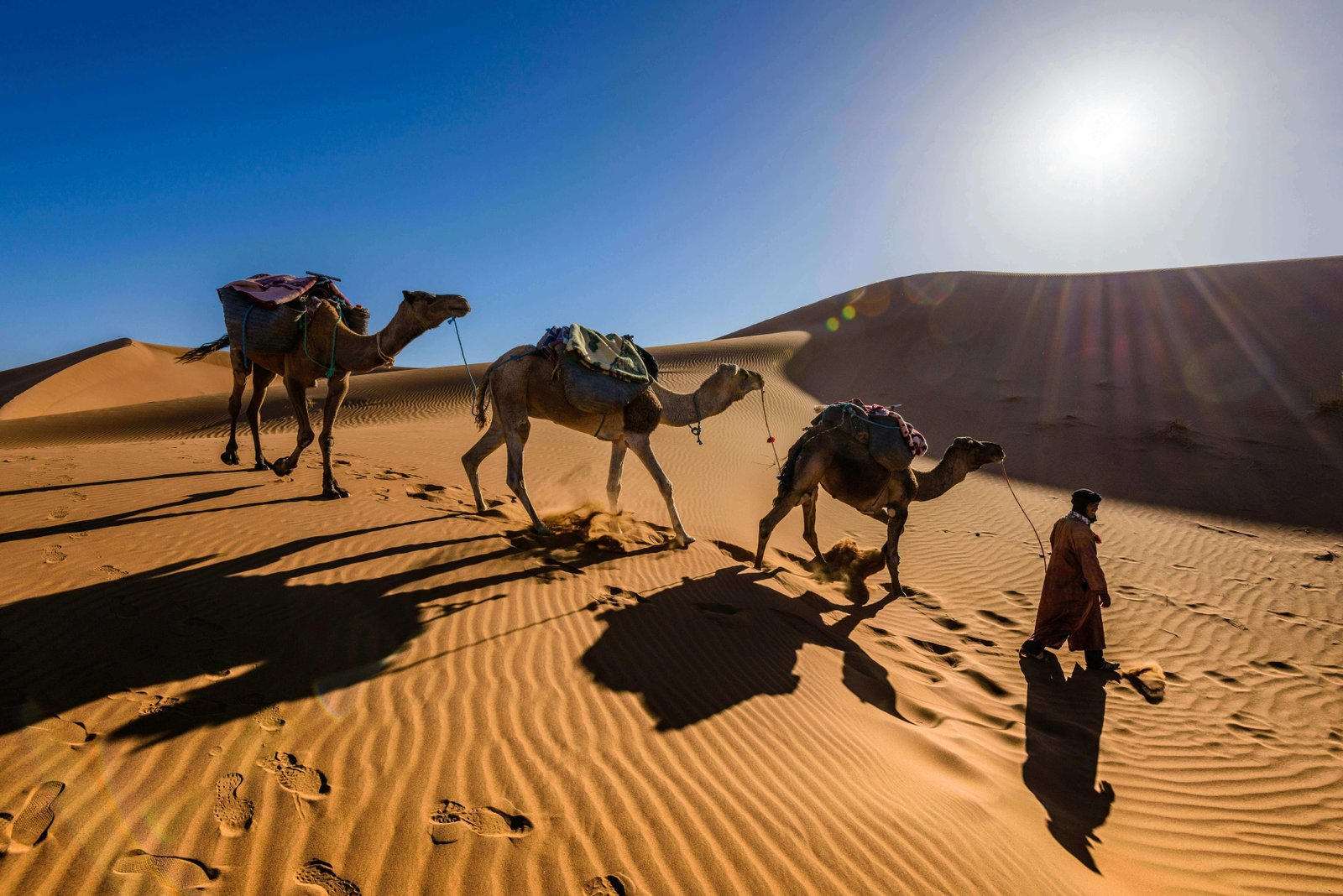
Morocco’s diverse landscapes and rich history offer an incredible array of destinations that showcase the country’s unique character. Each region provides distinct experiences, from imperial cities steeped in history to dramatic mountain ranges and the legendary Sahara Desert.
Marrakech, an imperial city known as the “Red City,” serves as many travelers’ introduction to Morocco’s vibrant energy. The heart of the ancient city pulses at Djemaa el Fna, the central square that transforms throughout the day from a marketplace to an outdoor entertainment venue. The surrounding medina, or old quarter, contains countless market stalls selling everything from traditional textiles to aromatic spices, while the nearby royal palace and Islamic architecture provide glimpses into Morocco’s imperial past. Djemaa el Fna Square is particularly lively, featuring acrobats, local entertainers, and a vibrant atmosphere that captivates visitors.
Fez represents Morocco’s intellectual and spiritual heart, home to the world’s oldest continuously operating university. The medieval medina here is a UNESCO World Heritage site where traditional leather tanneries still operate using centuries-old techniques. A walking tour through Fez’s narrow alleys reveals ancient madrasas, traditional workshops, and hidden courtyards that have remained unchanged for generations.
Casablanca, Morocco’s economic capital, offers a fascinating blend of modern cosmopolitan energy and traditional Moroccan culture. The magnificent Hassan II mosque stands as one of the world’s largest mosques, its minaret rising dramatically above the Atlantic Ocean. The city’s modern amenities, vibrant nightlife, and excellent restaurants make it an ideal starting or ending point for many morocco trips. In addition to Casablanca and Rabat, other major cities in Morocco, such as Tangier and Agadir, offer unique experiences and attractions for travelers seeking to explore the country’s urban diversity.
Rabat, the capital city, provides a more relaxed atmosphere while showcasing Morocco’s political significance. The royal palace complex, ancient ruins, and coastal views along the Atlantic Ocean create a perfect balance of history and natural beauty. Many visitors appreciate Rabat’s tree-lined boulevards and French colonial architecture.
The Atlas Mountains offer stunning natural beauty and cultural experiences in traditional Berber villages. The High Atlas Mountains provide excellent hiking opportunities, while the Middle Atlas Mountains feature cedar forests and mountain lakes. Many tours include overnight stays in mountain villages where you can experience traditional hospitality and enjoy sweet mint tea while learning about Berber culture. A popular activity in this region is traveling by 4x4 for dinner in a Berber-style camp, which offers a unique blend of adventure and cultural immersion.
The Sahara Desert represents the ultimate Morocco adventure for many travelers. Camel treks from towns like Merzouga lead to spectacular dunes where you can experience desert camps complete with traditional music, storytelling, and sleeping under the stars. The contrast between the desert’s vastness and the intimate scale of Berber hospitality creates unforgettable memories. Morocco’s southern border is shared with Western Sahara, highlighting the country’s proximity to this unique region and adding to its geographic diversity.
Cultural immersion opportunities abound throughout Morocco, offering travelers authentic connections with local traditions. Many tours include hands-on cooking classes where you can learn to prepare traditional tagines and couscous while understanding the cultural significance of Moroccan cuisine. Tagine, a stew-like dish made in a clay pot, typically contains meat and vegetables and is a staple of Moroccan culinary heritage. Couscous, the national dish of Morocco, is made of steamed semolina and is often served on Fridays as part of a communal meal. Chermoula, a marinade made with herbs and spices, is commonly used in Moroccan fish dishes, adding a unique flavor to the cuisine. These culinary experiences often take place in traditional riads or local homes, providing intimate glimpses into daily Moroccan life.
Berber village visits offer profound cultural exchanges, typically including traditional mint tea ceremonies that demonstrate the importance of hospitality in Moroccan culture. These visits often include demonstrations of traditional crafts like carpet weaving or pottery making, allowing you to appreciate the skill and artistry that have been passed down through generations.
Navigating the souks requires both skill and cultural sensitivity. Guided tours often include haggling lessons that teach respectful bargaining techniques while helping you understand the social aspects of marketplace interactions. Learning these customs enhances your shopping experiences while showing respect for local traditions. Be prepared to haggle in souks and markets in Morocco, as bargaining is common and an integral part of the shopping experience. Tipping is also a cultural norm in Morocco, so it’s a good idea to carry small change for tips when shopping or dining.
Traditional hammam spa treatments provide relaxation and cultural insight into Moroccan wellness traditions. Many tours include visits to traditional bathhouses where you can experience centuries-old cleansing rituals using local ingredients like argan oil and black soap.
Evening entertainment often features live traditional music and dance performances, particularly in desert camps and traditional restaurants. These experiences showcase Morocco’s rich musical heritage while providing a wonderful time for reflection on your cultural discoveries.
Packing appropriately for Morocco requires balancing comfort, cultural sensitivity, and practical considerations for diverse climates and activities. The key principle is dressing modestly while preparing for temperature variations that can range from cool mountain mornings to warm desert afternoons.
Modest clothing is essential throughout Morocco, particularly when visiting religious sites and traditional communities. Pack lightweight, loose-fitting clothes that cover shoulders and knees as a sign of respect for local customs. Long-sleeved shirts and long pants in breathable fabrics like cotton or linen work well for both cultural appropriateness and sun protection. Many experienced travelers recommend earth tones that hide dust and blend well with Morocco’s natural landscapes. It is also recommended to limit checked luggage to one suitcase per person when traveling to Morocco, as this simplifies transportation and ensures a more manageable travel experience. The standard voltage in Morocco is 220 V, so travelers should bring appropriate electrical adapters to charge their devices.
Layering options are crucial due to significant temperature variations. Desert nights can be surprisingly cool even when days are warm, while mountain regions experience dramatic temperature swings. Pack a warm jacket or fleece for evening desert camps and mountain areas, along with lighter layers for adjusting throughout the day.
Comfortable, slip-on sandals prove invaluable for easy removal when entering mosques and traditional homes. Many travelers find that closed-toe shoes work better for walking on uneven surfaces in ancient medinas and for protection from sand in desert areas. Choosing comfortable slip-on sandals is particularly advisable for visiting homes and hammams, where footwear is often removed. Breaking in new shoes before your trip prevents discomfort during extensive walking tours.
A versatile scarf serves multiple purposes: sun protection during outdoor activities, a head covering when entering religious sites, and warmth during cool evenings. Choose lightweight, breathable fabrics that can be easily packed and washed.
Essential items include SPF 30+ sunscreen and UV-protected sunglasses for protection against intense sun, particularly in desert regions and high-altitude areas. The sun’s intensity in Morocco can be deceiving, especially in cooler months. Packing a reusable water bottle is encouraged for sustainable travel in Morocco, helping reduce plastic waste while keeping you hydrated during your adventures.
Essential items include SPF 30+ sunscreen and UV-protected sunglasses for protection against intense sun, particularly in desert regions and high-altitude areas. The sun’s intensity in Morocco can be deceiving, especially in cooler months. Bringing a scarf can help keep the sun and sand off the face while traveling in Morocco, making it a versatile and practical addition to your packing list.
Additional recommended items include hand sanitizer, basic first aid supplies, and any prescription medications you regularly take. While pharmacies are available in major cities and many restaurants maintain good hygiene standards, being prepared for minor health issues enhances your travel comfort.
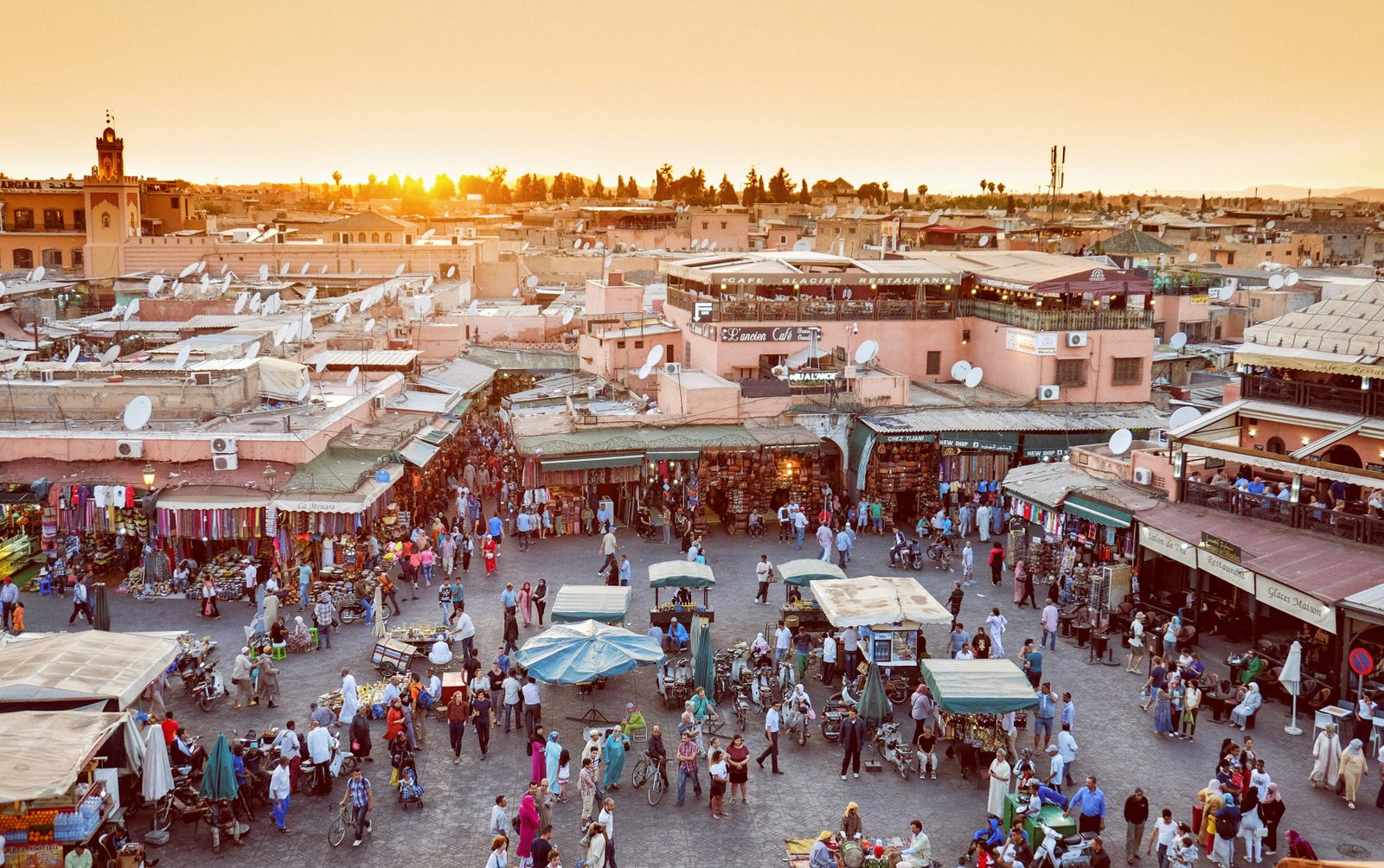
The duration of your trip to morocco from usa significantly impacts the depth of experiences you can enjoy. While weekend getaways are technically possible, most travel experts strongly recommend a minimum of 5 days to make the long international journey worthwhile and allow for proper cultural immersion.
Seven to eight-day trips provide excellent introductions to Morocco’s essential highlights. These shorter itineraries typically focus on the triangle of major cities: Marrakech, Fez, and Casablanca, with possible day trips to nearby attractions. This duration allows for meaningful exploration of each city’s unique character while accommodating the time needed to adjust to the cultural differences and pace of Moroccan life.
Ten to twelve-day trips represent the sweet spot for comprehensive Morocco experiences. These itineraries can include the imperial cities plus meaningful time in the Atlas Mountains and the Sahara Desert. The additional days allow for a more relaxed pace, deeper cultural interactions, and the inclusion of activities like desert camping, mountain hiking, or extended souk exploration. Many of the best morocco tours fall into this duration category.
Extended trips of fourteen days or more open possibilities for exploring Morocco’s full diversity, including coastal cities along both the Atlantic Ocean and Mediterranean Sea, remote Berber villages in the Rif Mountains, and historic sites like ancient ruins and Roman ruins. These longer itineraries appeal to travelers seeking comprehensive cultural immersion or those combining Morocco with visits to other North African destinations.
Popular itinerary themes include cultural focus tours that emphasize historical sites, traditional crafts, and cultural exchanges with local communities. Adventure-focused trips highlight activities like hiking in the High Atlas Mountains, camel trekking in the Sahara Desert, and water sports along the coast. Luxury itineraries feature premium accommodations, private guides, and exclusive experiences like cooking classes with renowned chefs or private access to historical sites.
When planning your itinerary, consider the travel time between destinations. Morocco’s geography means that reaching remote areas or covering large distances requires significant travel time, which should be factored into your planning. Many successful itineraries follow logical geographic progressions rather than jumping between distant regions.
The most popular choice among American travelers is the 10-day “Magic of Morocco” style itinerary that includes Marrakech, Fez, the Sahara Desert, and the Atlas Mountains. This duration provides enough time for meaningful experiences in each location while allowing for the relaxed pace that enhances cultural appreciation.
Understanding the financial aspects of your morocco trip helps ensure realistic planning and maximum value for your investment. Budget ranges vary significantly based on travel style, tour inclusions, and personal preferences, but clear patterns emerge across different categories.
Budget-conscious morocco trips typically range from $1,500 to $2,500 per person, including flights from major US cities. These packages usually feature mid-range accommodations, group tours with larger group sizes, and standard meal inclusions. Budget tours often include the major highlights, but with less flexibility and fewer unique experiences. However, they still provide excellent value for first-time visitors wanting comprehensive coverage of Morocco’s main attractions.
Mid-range packages, ranging from $3,000 to $5,000 per person, offer enhanced comfort and more personalized experiences. These tours typically feature better accommodations, smaller group sizes, more inclusive meal plans, and additional activities like guided tours of traditional markets or hands-on cooking classes. The price difference often results in significantly improved comfort levels and cultural access.
Luxury morocco experiences, starting at $6,000 and extending beyond $10,000 per person, provide premium accommodations comparable to Four Seasons standards, private guides, exclusive access to cultural sites, and unique experiences like private desert camps or helicopter tours. These packages often include all meals, premium transportation, and comprehensive travel insurance.
Airfare typically represents 40-50% of total trip costs, making flight selection a crucial budget consideration. Travelers from East Coast cities generally enjoy lower airfare costs due to shorter distances and more direct flight options. West Coast travelers often find better value in package deals that bundle flights with accommodations and tours.
Group tours consistently offer better value than independent travel, particularly for first-time visitors. Tour operators’ relationships with local suppliers, hotels, and guides result in significant cost savings that individual travelers cannot match. Additionally, group tours include logistical support and cultural interpretation that enhance the overall experience value.
All-inclusive packages simplify budgeting and eliminate many unexpected expenses. These packages typically cover accommodations, most meals, transportation between destinations, guided tours, and entrance fees to major attractions. While the upfront cost appears higher, the comprehensive nature often results in better overall value and budget predictability.
Additional costs to consider include travel insurance (strongly recommended for international travel), shopping for souvenirs and local crafts, optional activities not included in your tour package, and meals not covered by your itinerary. Many travelers budget an additional $500-$1,000 for personal expenses and optional activities.
Morocco presents minimal health risks for American travelers, particularly those joining organized tours with established operators. No special vaccinations are required for entry, though routine immunizations should be current according to the Centers for Disease Control recommendations. Travelers are advised to consult a physician for health advice before traveling to Morocco, especially if they plan to engage in activities like eating street food or visiting remote areas. Petty crimes like pickpocketing and scamming can occur in Morocco, so travelers should remain vigilant, especially in crowded areas and tourist hotspots.
Travel insurance is strongly recommended for comprehensive medical coverage, including emergency evacuation if needed. While Morocco has adequate medical facilities in major cities, travel insurance provides peace of mind and financial protection for unexpected health issues or trip disruptions. Many tour operators include basic travel insurance in their packages, but comprehensive coverage often requires a separate purchase.
Personal safety in Morocco is generally excellent for tourists, especially those participating in guided tours. Tour operators provide 24/7 support and emergency assistance, creating additional security layers for travelers. However, vigilance against petty crime in tourist areas remains important, particularly in crowded markets and tourist-heavy locations like Djemaa el Fna in Marrakech.
Common-sense precautions include drinking bottled water or water from reliable sources, eating at reputable restaurants (many tour itineraries include carefully selected dining establishments), and being cautious with street food unless recommended by knowledgeable guides. Most organized tours include meals at restaurants that meet international hygiene standards. Hepatitis A and Typhoid vaccines are often suggested by the CDC for travelers who plan to eat street food in Morocco, as these vaccines provide protection against foodborne illnesses.
Morocco’s political stability and well-developed tourism infrastructure contribute to overall safety for American visitors. The country’s economy depends heavily on tourism, creating strong incentives for maintaining safe conditions for international travelers. Tourist police in major cities provide additional security and assistance specifically for international visitors.
Health considerations specific to Morocco include protection from intense sun exposure, particularly in desert regions and high-altitude areas. Staying hydrated is crucial, especially during active tours or desert excursions. Most tour operators provide regular water breaks and ensure adequate hydration during activities.
Emergency contact information, including US Embassy details and tour operator contacts, should be readily accessible on your mobile phone or in written form. The US State Department’s Smart Traveler Enrollment Program (STEP) provides real-time safety updates and emergency assistance coordination. Enrolling in STEP is a proactive way to stay informed and prepared during your travels in Morocco. For guardians traveling with children, carrying a letter authorizing emergency treatment is recommended to ensure smooth handling of any unforeseen medical situations.

Morocco stands out as an exceptional destination that uniquely combines accessibility, cultural richness, and diverse experiences for American travelers. As a gateway to Africa with significant European influences and deep Arab traditions, Morocco offers an exotic adventure that remains surprisingly accessible for US citizens.
The country’s diverse experiences create something for every type of traveler. From the snow-capped peaks of the High Atlas Mountains to the vast dunes of the Sahara Desert, from bustling imperial cities to peaceful Berber villages, Morocco compresses incredible geographic and cultural diversity into a manageable travel destination. You can experience ancient ruins, Islamic architecture, traditional markets, and modern amenities all within a single trip.
Morocco’s rich cultural heritage provides immersive experiences that go far beyond typical tourist attractions. The imperial cities of Marrakech, Fez, Meknes, and Rabat each offer distinct historical perspectives, while traditional crafts, cuisine, and customs remain vibrantly alive in daily life. Opportunities for cultural exchange, from mint tea ceremonies in Berber villages to haggling lessons in traditional souks, create meaningful connections with local people and traditions.
Excellent value compared to European destinations makes Morocco particularly attractive for American travelers. Accommodation, dining, transportation, and activities generally cost significantly less than comparable experiences in Western Europe, allowing for longer trips or higher-quality experiences within similar budgets. The favorable exchange rate often surprises travelers with how far their dollars stretch.
Morocco’s family-friendly nature and welcoming local culture create positive experiences for travelers of all ages. The country’s long history of hospitality, combined with its stable political environment and well-developed tourism infrastructure, provides comfort for first-time international travelers while offering depth for experienced adventurers.
The unique position of Morocco - bridging Africa, Europe, and the Arab world - creates a travel experience unlike anywhere else. French colonial influences blend with Berber traditions and Islamic culture, while Atlantic Ocean and Mediterranean Sea coastlines provide geographic diversity. This cultural fusion creates a wonderful time for exploration and discovery that satisfies diverse interests and travel styles.
For many travelers, Morocco represents an ideal introduction to Africa and the Islamic world, offering exotic experiences within a framework of modern tourism infrastructure and safety. The combination of cultural immersion, natural beauty, historical significance, and accessibility makes Morocco an outstanding choice for your upcoming journey.
Whether you’re seeking morocco adventure in the Sahara Desert, cultural exploration in ancient medinas, relaxation along beautiful coastlines, or culinary discoveries in traditional restaurants, Morocco delivers experiences that create lasting memories and often inspire return visits to explore even more of this captivating country.
Morocco, nestled in the heart of North Africa, is a destination that captivates travelers with its vibrant energy, rich culture, and breathtaking diversity. Bordered by both the Atlantic Ocean and the Mediterranean Sea, this enchanting country offers a unique blend of landscapes—from the snow-capped peaks of the Atlas Mountains to the golden sands of the Sahara. The bustling city of Marrakech, with its lively souks and historic medina, is just one example of Morocco’s ability to seamlessly blend ancient traditions with modern life. Whether you’re drawn to the intricate Islamic architecture, the flavors of Moroccan cuisine, or the colorful festivals that fill the streets, Morocco promises an experience that is both authentic and unforgettable. With its harmonious mix of Arab, Berber, and European influences, Morocco stands out as a country where every traveler can find inspiration, adventure, and a warm welcome.
Reaching Morocco from the USA is straightforward, thanks to a range of direct and connecting flights to the country’s major cities. Airlines operate regular routes to Casablanca, Marrakech, and Fez, making it easy for travelers to access Morocco’s most popular destinations. The flight time from the US East Coast is typically around 7-8 hours, while travelers from other regions may have slightly longer journeys with convenient layovers in European hubs. Upon arrival, navigating Moroccan cities is simple—taxis, buses, and rental cars are readily available, allowing you to explore at your own pace. It’s essential to have a valid passport for entry, and while US citizens can visit Morocco visa-free for up to 90 days, it’s wise to check your passport’s expiration date before booking. For added peace of mind, purchasing travel insurance is highly recommended, as it covers unexpected medical or travel-related expenses and ensures a smooth experience throughout your trip. Whether you’re landing in the vibrant city of Marrakech or another bustling Moroccan city, you’ll find modern amenities and a warm welcome awaiting you.
For those seeking excitement and unforgettable experiences, Morocco is a true adventure playground. The majestic Atlas Mountains offer endless opportunities for hiking, trekking, and mountain biking, with trails that wind through scenic valleys and traditional Berber villages. If you crave the thrill of the desert, embark on a camel trek across the rolling dunes of the Sahara Desert, where you can spend the night in a desert camp under a canopy of stars. The Atlantic coast is a hotspot for water sports enthusiasts, with world-class surfing, kitesurfing, and windsurfing in destinations like Essaouira and Taghazout. Rock climbers will find dramatic cliffs and gorges, such as the Todra Gorge, perfect for scaling new heights. For a different kind of adventure, take to the skies in a hot air balloon for panoramic views of Morocco’s diverse landscapes. And if you prefer a hands-on cultural experience, join a cooking class to master the art of preparing traditional Moroccan dishes. With its blend of natural wonders and rich heritage, Morocco is the ultimate destination for adventure travelers.
Morocco’s accommodation options are as diverse as its landscapes, catering to every style and budget. In major cities like Marrakech, Fez, and Casablanca, you’ll find a wide selection of modern hotels and luxury resorts offering all the comforts and amenities you expect. For a more authentic experience, stay in a traditional riad—a beautifully restored guesthouse set around a tranquil courtyard, often located in the heart of the old medina. In rural areas and the foothills of the Atlas Mountains, you can immerse yourself in Berber hospitality at charming guesthouses or opt for a magical night in a desert camp beneath the stars. Many riads and hotels also offer hands-on cooking classes, giving you the chance to learn the secrets of Moroccan cuisine from local chefs. Whether you’re seeking the vibrant atmosphere of the city or the peaceful serenity of the countryside, booking your accommodation in advance—especially during peak travel seasons—ensures you’ll have the perfect base for your Moroccan adventure.
Before embarking on your Morocco tour, it’s essential for US travelers to ensure all travel documents are in order. A valid passport with at least six months’ validity beyond your planned departure date is required for entry into Morocco. US citizens can visit Morocco for tourism or business without a visa for stays up to 90 days, making it easy to plan your trip. However, it’s always wise to check the latest entry requirements with the Moroccan embassy or consulate before your tour, as regulations can change.
To safeguard your journey, make photocopies of your passport, any required visas, and your travel insurance documents. Leave a copy with a trusted friend or family member at home and keep another set separate from your originals while traveling. This precaution can be invaluable if your documents are lost or stolen during your Morocco adventure. Having comprehensive travel insurance is also highly recommended, as it provides peace of mind and support in case of emergencies. With these preparations, you can focus on enjoying the vibrant culture and unforgettable experiences that await you in Morocco.
Embracing responsible travel is key to making your Morocco adventure meaningful for both you and the communities you visit. As Morocco is a Muslim country with a rich culture and deep-rooted traditions, travelers are encouraged to dress modestly, especially when exploring rural areas or visiting religious sites. Simple gestures like removing your shoes before entering homes or mosques, and refraining from public displays of affection, show respect for local customs and help foster positive interactions.
When booking Morocco guided tours, look for operators committed to sustainable tourism practices. This includes supporting local businesses, minimizing plastic waste, and encouraging genuine cultural exchange. By choosing tours that prioritize the well-being of local communities and the environment, you contribute to preserving Morocco’s unique heritage and natural beauty. Responsible travel not only enriches your own experience but also ensures that future generations of travelers and locals alike can continue to enjoy all that this remarkable country has to offer.
Group travel is an excellent way for US visitors to experience the best of Morocco, offering camaraderie, convenience, and a wealth of shared memories. Many reputable operators, such as Morocco Classic Tours, design Morocco tours that cater to a variety of interests and activity levels. Whether you’re eager to trek through the Atlas Mountains, explore the imperial cities of Marrakech, Fez, and Rabat, or savor sweet mint tea in a Berber village, there’s a group tour to match your travel style.
Group tours often include guided visits to major cities, immersive cultural experiences like hands-on cooking classes, and opportunities to connect with local culture in authentic ways. When selecting a tour, consider factors such as group size, itinerary, and the physical demands of the activities to ensure the experience aligns with your preferences. Traveling with a group not only provides structure and expert guidance but also opens doors to new friendships and deeper cultural understanding, making your journey through Morocco even more rewarding.
Morocco is a destination that promises a vibrant energy, rich culture, and a tapestry of unforgettable experiences for every traveler. From the bustling markets of Marrakech to the tranquil expanse of the Sahara Desert, and from ancient ruins to the comforts of modern amenities, Morocco tours offer something for everyone. By preparing with the right travel documents, embracing responsible travel practices, and choosing tours that immerse you in local culture, you’ll ensure your Morocco adventure is both meaningful and memorable. If you need assistance planning your trip or want to customize your adventure, contact us for personalized support.
Don’t forget to pack your reusable water bottle and an open mind as you set out to explore this captivating country. Whether you’re drawn by the allure of ancient history, the thrill of desert adventures, or the warmth of Moroccan hospitality, your journey will leave you with lasting memories and a deeper appreciation for this unique destination. Morocco’s blend of African, Arab, and European influences creates a travel experience unlike any other—one that will inspire you to return and discover even more of its wonders.
When planning your Morocco adventure, it’s important for US travelers to be proactive about health and vaccination requirements to ensure a safe and enjoyable experience. According to the Centers for Disease Control and Prevention (CDC), there are no mandatory vaccinations for entry into Morocco, but it’s wise to make sure your routine immunizations are up to date before your trip. The CDC also recommends that travelers consider vaccinations for hepatitis A and typhoid, as these illnesses can be contracted through contaminated food or water—especially if your Morocco tour includes sampling local cuisine or exploring bustling markets in major cities like Marrakech or Fez.
If your itinerary includes active Morocco tours—such as hiking in the High Atlas Mountains, embarking on a walking tour of a medieval medina, or joining a desert trek in the Sahara—it’s essential to take extra precautions. Protect yourself from the strong Moroccan sun with high-SPF sunscreen, wear a hat and lightweight clothing, and stay hydrated by carrying a reusable water bottle. Choosing a reputable Morocco tour operator for your guided tour ensures you’ll have expert support and access to safe, well-organized activities throughout your journey.
Travelers should also be mindful of health risks in rural areas. While Morocco’s major cities offer well-equipped hospitals and modern medical facilities, access to healthcare in remote regions can be limited. For those venturing off the beaten path, travel insurance that covers medical emergencies and evacuation is strongly recommended. This added protection gives you peace of mind, whether you’re exploring imperial cities or venturing into the countryside.
Animal encounters are a highlight of many Morocco trips, but it’s important to exercise caution—rabies is present in Morocco, particularly in rural areas. Avoid petting or feeding stray animals, and seek immediate medical attention if bitten or scratched. Additionally, while the risk of insect-borne diseases like malaria is low in most of Morocco, it’s still wise to use insect repellent and wear long sleeves and pants, especially if your travels take you to the Mediterranean Sea coast or the High Atlas Mountains.
Food and water safety are key to enjoying your Morocco adventure. Stick to bottled or filtered water, avoid ice in drinks, and opt for well-cooked foods—especially when dining in rural areas or at market stalls. Bringing a reusable water bottle is both eco-friendly and practical, helping you stay hydrated as you explore Morocco’s vibrant cities and stunning landscapes.
In case of a medical emergency, the US Embassy in Rabat, Morocco’s capital city, is a valuable resource for assistance and information on local medical facilities. By taking these simple precautions and staying informed, you’ll be well-prepared to enjoy a wonderful time discovering Morocco’s rich culture, from hands-on cooking classes in the city to guided tours of ancient imperial cities and beyond.
Morocco is a land of breathtaking contrasts, where every region offers a new adventure for travelers. The majestic Atlas Mountains, stretching across the country, are divided into the High Atlas, Middle Atlas, and Anti-Atlas ranges. These mountains are a paradise for hikers and trekkers, with trails that wind through lush valleys, dramatic gorges, and traditional Berber villages. Whether you’re seeking a challenging ascent or a scenic stroll, Morocco tours often include guided hikes that reveal the natural beauty and cultural richness of the Atlas Mountains.
No trip to Morocco is complete without experiencing the awe-inspiring Sahara Desert. The endless dunes create a surreal landscape, perfect for camel treks, desert camping, and unforgettable stargazing under the clear night sky. Many tours offer the chance to sleep in a desert camp, where the silence and vastness of the Sahara provide a sense of wonder and tranquility.
Morocco’s coastline is equally captivating, with the Atlantic Ocean to the west and the Mediterranean Sea to the north. These coastal regions are dotted with charming towns, golden beaches, and vibrant ports. Whether you’re exploring the windswept shores of Essaouira or relaxing in a Mediterranean fishing village, the blend of sea and sand adds another dimension to Morocco’s diverse geography. With so many landscapes to discover, Morocco remains a top destination for travelers seeking both adventure and relaxation.
Morocco’s major cities are vibrant hubs where history, culture, and modern life intertwine. Marrakech, Fez, and Rabat—each an imperial city—invite travelers to step back in time as they wander through ancient ruins, medieval medinas, and bustling market stalls. A walking tour through these cities is the perfect way to soak up the rich culture, from the intricate Islamic architecture to the lively sounds and scents of the souks. Sipping sweet mint tea in a traditional café or riad is a quintessential Moroccan experience, offering a moment of relaxation amid the city’s vibrant energy.
Morocco guided tours make it easy to uncover hidden gems, such as the Roman ruins of Volubilis near Meknes or the ornate palaces and gardens tucked away in the heart of Marrakech. Other major cities, like Casablanca and Tangier, offer a unique blend of modern amenities and traditional charm, with cosmopolitan restaurants, art galleries, and seaside promenades. Each city has its own character, but all share a welcoming spirit and a deep connection to Morocco’s storied past. Whether you’re a first-time visitor or a seasoned traveler, exploring Morocco’s cities is an essential part of any tour.
Moroccan cuisine is a feast for the senses, reflecting the country’s rich culture and diverse influences. From aromatic tagines and fluffy couscous to hearty harira soup, every meal is an opportunity to discover new flavors. Many Morocco tours include a hands-on cooking class, where travelers can learn to prepare traditional dishes using local spices and fresh ingredients. Visiting a bustling market to select produce and spices is often part of the experience, offering insight into daily life and culinary traditions.
No visit to Morocco is complete without enjoying a glass of mint tea, the symbol of Moroccan hospitality. Whether you’re welcomed into a family home, relaxing in a riad, or dining in one of the many restaurants, you’ll find mint tea served with warmth and ceremony. The act of sharing tea is woven into the fabric of Moroccan society, making it a memorable part of your journey. With every meal and every cup, you’ll taste the history and heart of Morocco.
Spending a night in a desert camp in the Sahara Desert is an experience that stays with travelers long after their trip ends. As the sun sets over the rolling dunes, the landscape transforms into a magical world of golden light and deep shadows. Many Morocco tours include a stay in a traditional desert camp, where you can savor Berber cuisine, listen to local music, and learn about the customs and stories of the desert people.
The Sahara’s clear, unpolluted skies make it one of the best places in the world for stargazing. Lying back on the soft sand, you’ll be treated to a dazzling display of stars, planets, and even the Milky Way. For many travelers, this peaceful connection with nature and local culture is the highlight of their Morocco adventure. Whether you’re riding a camel across the dunes, trying your hand at sandboarding, or simply soaking in the silence, a desert camp offers a unique glimpse into the soul of Morocco.
Travel insurance is a must-have for anyone planning a trip to Morocco. It provides essential protection against unexpected events, from medical emergencies to trip cancellations and delays. With so many activities to enjoy—like hiking in the Atlas Mountains, exploring ancient cities, or trying water sports along the Atlantic Ocean—having comprehensive coverage ensures peace of mind throughout your journey.
Many tour operators, including G Adventures, offer travel insurance as part of their Morocco tours, or you can purchase a policy separately to suit your needs. Be sure your insurance covers all planned activities, and check that your valid passport and any required documents are up to date before you travel. Taking these precautions allows you to focus on the adventure ahead, knowing you’re prepared for whatever your Morocco trip may bring. With the right coverage, you can fully enjoy the rich culture, stunning landscapes, and unforgettable experiences that make Morocco such a remarkable destination for travelers.
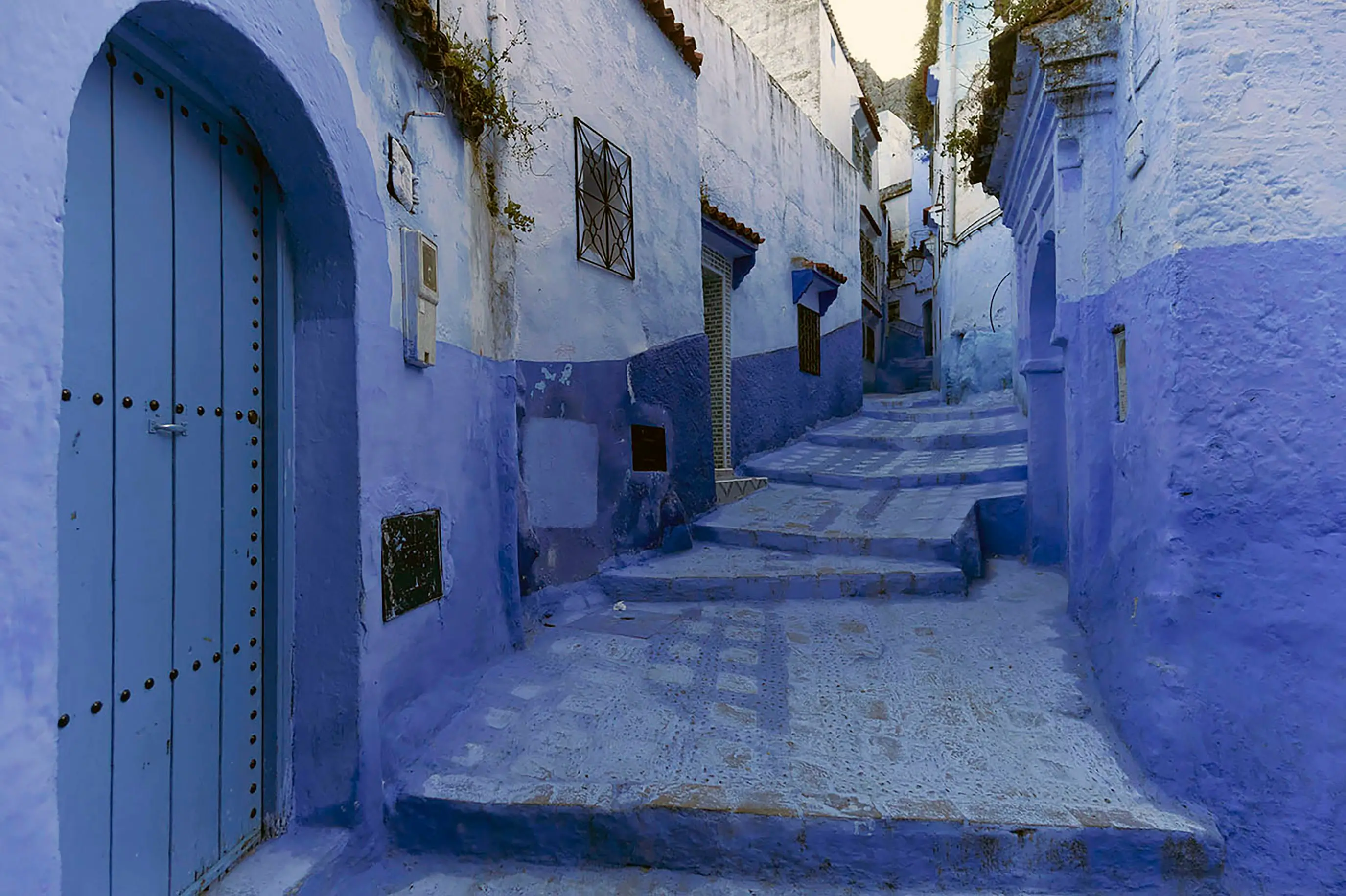
Explore top Moroccan tour operators for unforgettable adventures. Discover unique experiences that s...
Read this article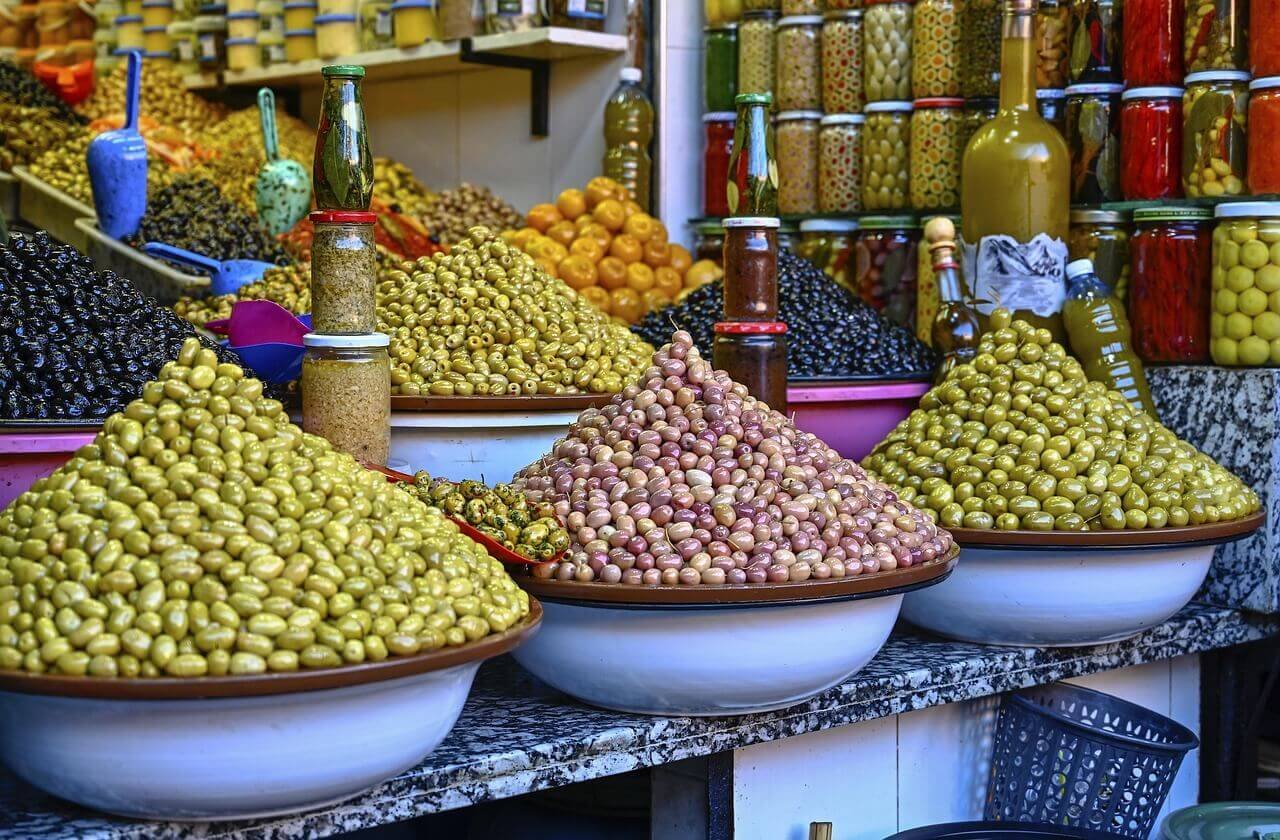
Explore Morocco's top travel destinations for an unforgettable experience. Discover vibrant cultures...
Read this article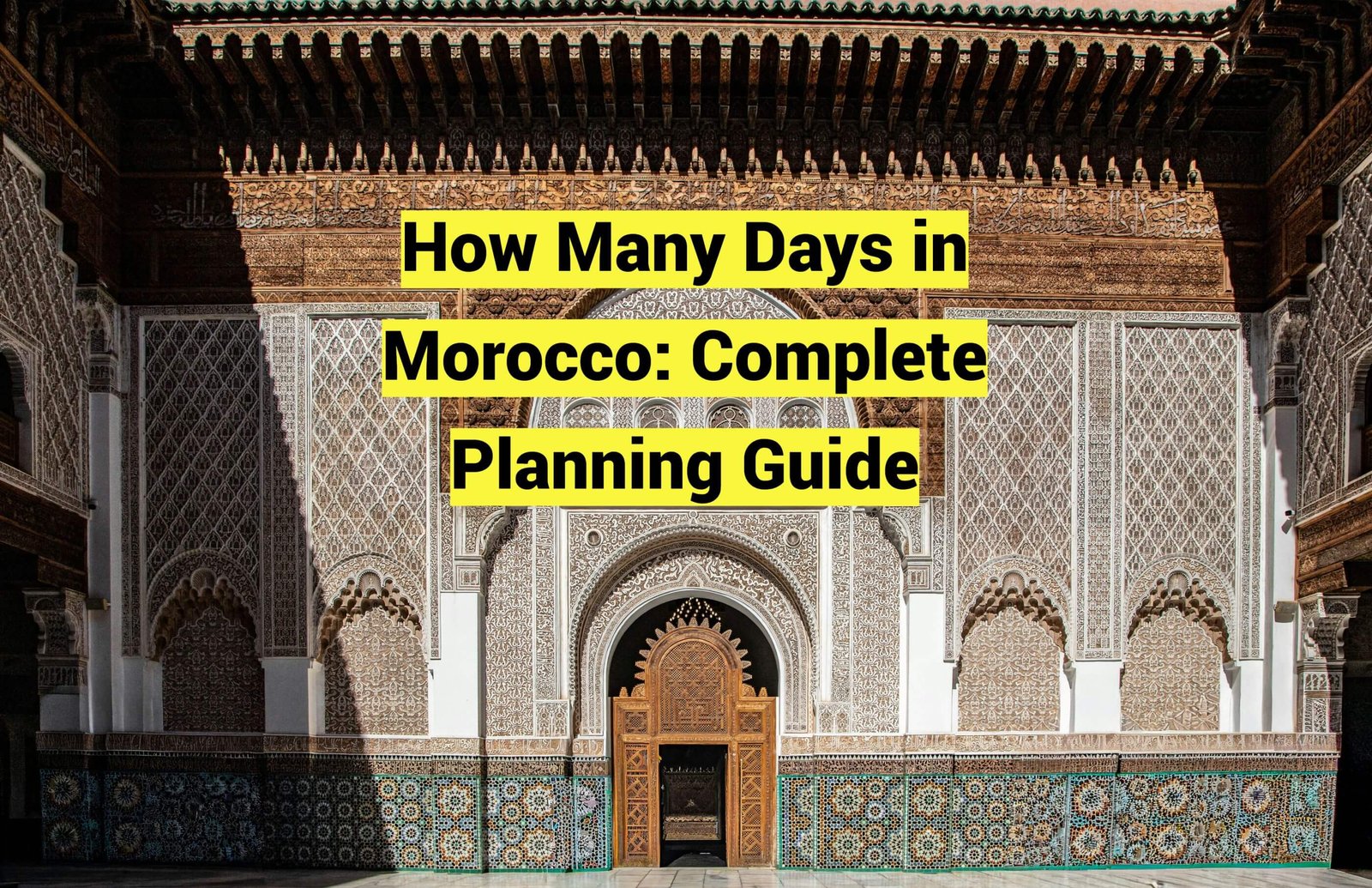
Discover the perfect itinerary for your Moroccan adventure. Learn how many days you need to explore ...
Read this articleWant cool tour deals and tips about Morocco? Enter your email and we’ll send them to you each month!